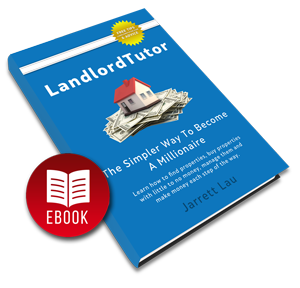
by J. Lau | Jul 29, 2022 | Maintenance & Capital Improvements, Renovations
Renovations are essential to every real estate investment, but don’t let the costs scare you. We share with you some thoughts on making your property more profitable, such as turning it into an appealing home with renovations.
Why Commit to Renovations
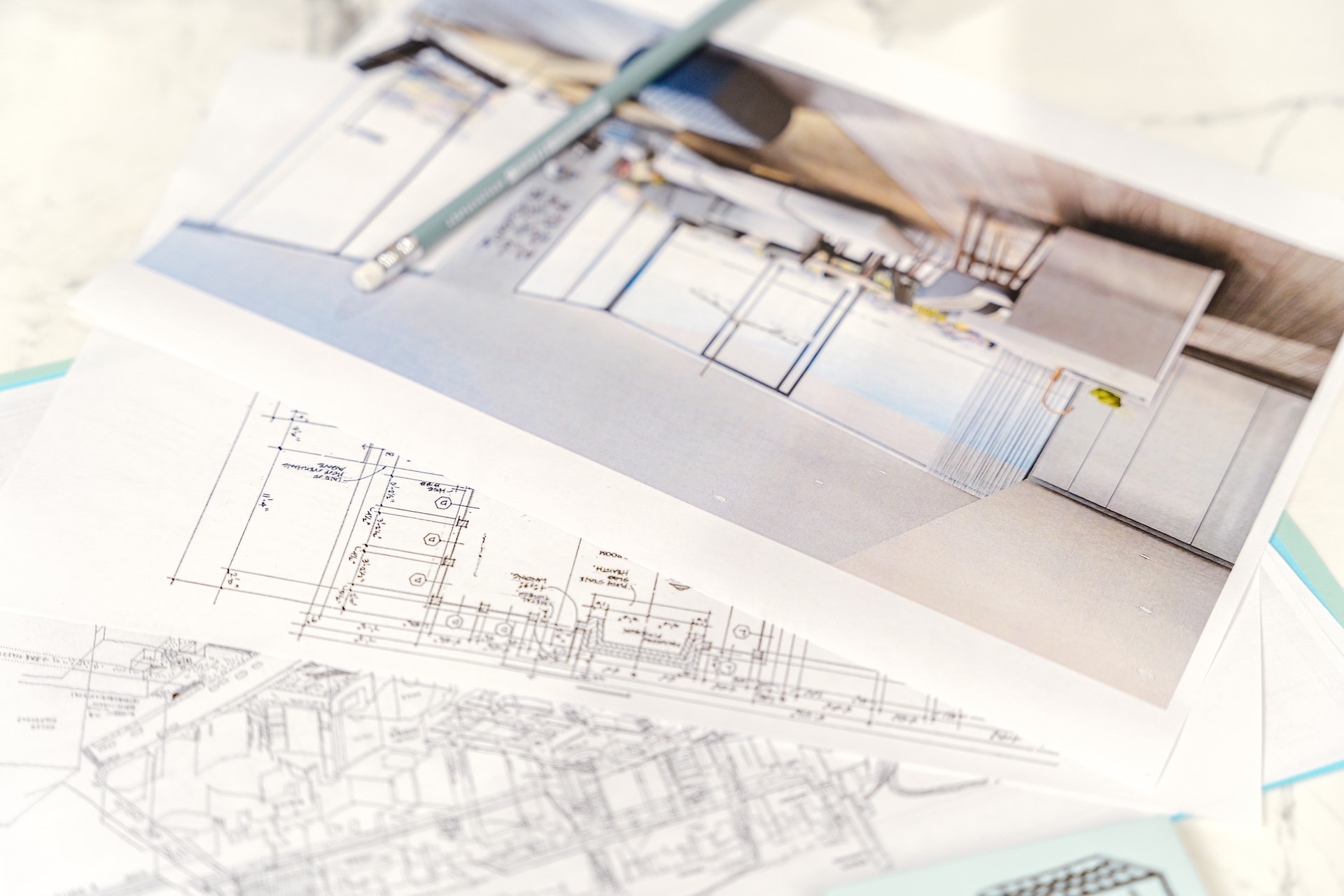
With every dollar that you put into your property, you want to make sure that you get a return on your investment. And we help you do that by walking through the property and determining what aspects would add value.
We focus on what would add value not only to you, the property owner but also through the tenants. Tenant value can be added through improvements to the property and making it more desirable.
By conducting renovations on your property, you make it more profitable by being able to increase the rent as well as the retention rate of your tenants.
If tenants are happy and they love the unit, they are going to want to stay, which means fewer turnover costs. And fewer turnover costs mean more money in your pocket.
How to Do Renovations Effectively
At the end of the day, we don’t want to go crazy with our renovations. We want to have a suitable taste that is desirable across the board.
Of course, trends change from year to year. What we can always guarantee, though, is that:
- Tenants love bright units, so we always make sure that the lighting is good.
- They also love keeping things looking clean, and the big trend right now is white cabinets, so we do that with lighter countertops as well.
- To match it all, we also guarantee stainless steel appliances.
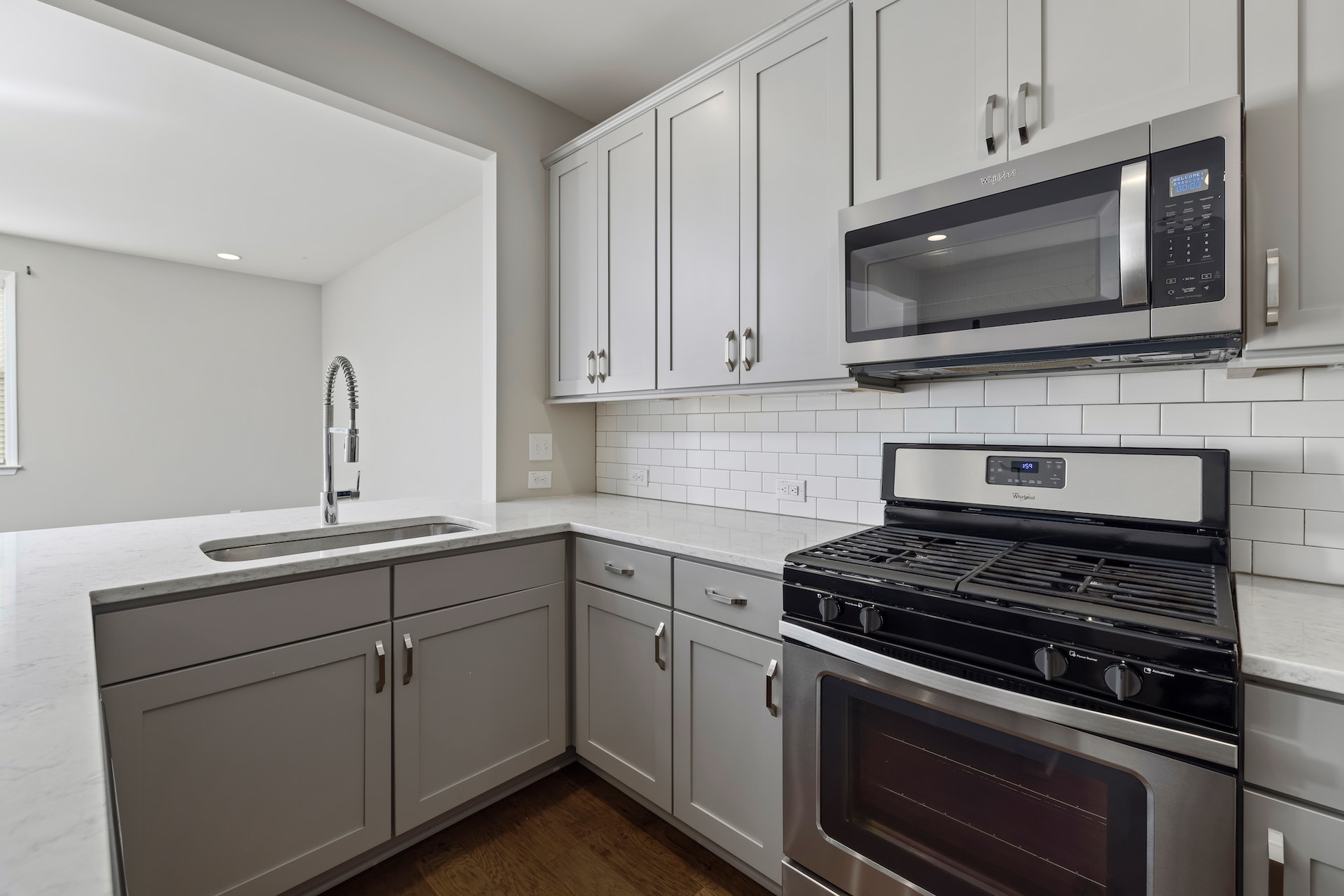
This is our proven strategy after going through the unit and determining what needs to be renovated or repaired. Sometimes, we are able to do a renovation in less than a week. We also save on costs by just repainting cabinets instead of replacing them.
With this, we minimize the actual turnover time and get tenants back into the unit paying rent.
Why Landlords Should Renovate
A lot of times, landlords don’t repair or make renovations or improvements. Slowly but surely, your properties will deteriorate, and they will become less desirable. This is not what you want.
And I’m not saying that you want it at the top of the market, but you want to be competitive and say that your units are nicer. If there are two equal-sized units for the same type of rent, you want to be the one tenants would choose.
You should determine what type of minor changes can make curb appeal improvements. You can also focus on things like the kitchen and the bathroom. These are two areas of your unit that tenants will focus on and base their decisions on.
And again, as we talked about with kitchens, the big things to consider are cabinets, countertops, appliances, and lighting. With bathrooms, it’s the same thing.
Tenants just want something clean and functional. They want to have space to put their goods, to make you feel like things aren’t cramped.
Ensuring a Profitable Property With Renovations
Once in a while, we will go through the layouts with you and change what is necessary. But most of the time, what we will do is update, improve, and determine what the market is demanding and what tenants are looking for.
We will always talk with you about that. We will give you a few different options to work from. Our trusted vendors and I will help ensure that you get the biggest return on investment on any improvement money spent.
As a general contractor myself, I have done hundreds of renovations not only for clients but also for my own properties,
The Landlord Tutor Promise
To know more about renovations and how you can make your property more profitable, join the Landlord Tutor community and sign up here.

by J. Lau | Jul 20, 2022 | Safety
Smoke detectors are more than just beeping machines; they are life-saving devices that guarantee fire safety. We talk about two kinds of smoke detectors: ionization and photoelectric, and what is best to have in your home.
By code in Massachusetts, it is required to have smoke detectors in any home or property. Most houses also need to have carbon monoxide alarms. But for today’s blog, we focus on smoke detectors.
Ionization vs. Photoelectric
Smoke detectors have two main types: ionization and photoelectric. We look into their differences and relevance to fire safety.
What Is an Ionization Smoke Detector?
Ionization detects smoke from flaming fires faster. They will go off when you have a fire caused by flammable things such as cloth, wood, flammable liquids, and burning papers.
Ionization smoke detectors detect fires with a small amount of smoke and heat that is combustible. For this reason, it is more prone to false alarms. Especially if installed in the kitchen, even smoke from burnt toast can trigger it to go off.
What Is a Photoelectric Smoke Detector?
Photoelectric detects fires or smoke from smoldering fires. These are fires caused by things like candles or anything electric in nature.
Generally, false alarms are less likely to occur with photoelectric smoke detectors. A photoelectric detector works differently, as it detects light particles of fire. This includes burning embers and flaming ashes that ionization detectors won’t pick up on.
We recommended installing photoelectric smoke detectors close to the kitchen and bathrooms. This is because it can distinguish cooking fumes, shower steam, and actual fires better than its ionization counterpart.
Which Smoke Detector Is the Best?
It is best to have smoke detectors of both types in different appropriate locations on your property. Ionization and photoelectric respond faster to different types of fires, so you cover more bases by having both.
For maximum safety and less cost, you can also choose the dual-type ones with sensors for both types. It is unpredictable which type of fire may occur, so having both types guarantee more protection.
The Landlord Tutor Promise
To know more about smoke detectors and fire safety, join the Landlord Tutor community and sign up here.

by J. Lau | Jul 15, 2022 | Emergencies, Property Maintenance, Tenant Issues
Leaks and water damage can happen anywhere or be completely hidden from plain sight. Here are the ways to spot hidden leaks so you can start to fix and prevent further need for repairs.
Why are leaks so common?
Everything ages with time. In a home, this includes roofs, gutters, downspouts, toilets, and faucets. When these get old, they eventually start to malfunction and cause problems.
In many multifamily homes or condos, plumbing problems are also common.
Most leaks aren’t visible and aren’t easy to notice right away. That’s why they’ve been known to create damage in your home that isn’t easily noticeable at first.
How to Spot Leaks
When leaks are discovered, homeowners need to seek professional help quickly to prevent further damage.
Here are some ways to get started on spotting hidden water leaks:
Look for the leak source
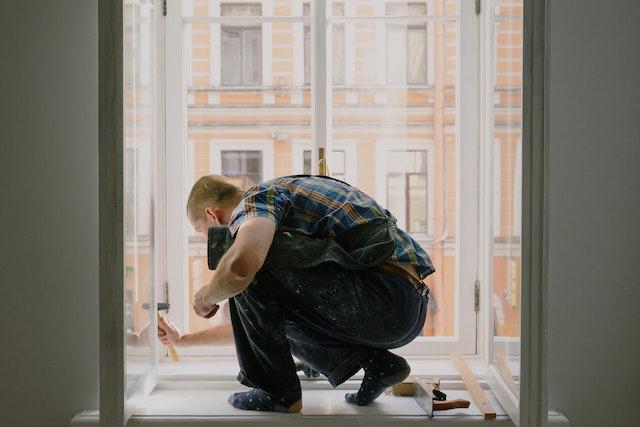
If you don’t know where it’s coming from, you won’t be solving the main problem. You can check these areas first, where leaks are more than likely to occur:
- kitchen
- bathroom
- roof
- attic
- chimney
Sometimes, though, it doesn’t have to be a room in the home. So you should also double-check window frames, ledges, or gutters because these may be clogged out.
Look out for the plumbing
Kitchens and baths in buildings are usually above each other. The most common leaks also come from toilets, bathroom tubs, or shower drains.
So for a leak in one unit, many times, we have to open up the ceiling of the unit below it to take a look and test the leaks.
When testing the plumbing on buildings, you have to do so one at a time. You don’t want to test them simultaneously because sometimes they funnel into one drain, and you won’t be able to figure out the source of the issue.
Also, remember that stack pipes can be a harder issue because you have to open up walls vertically in order to access and see that.
Invest in equipment
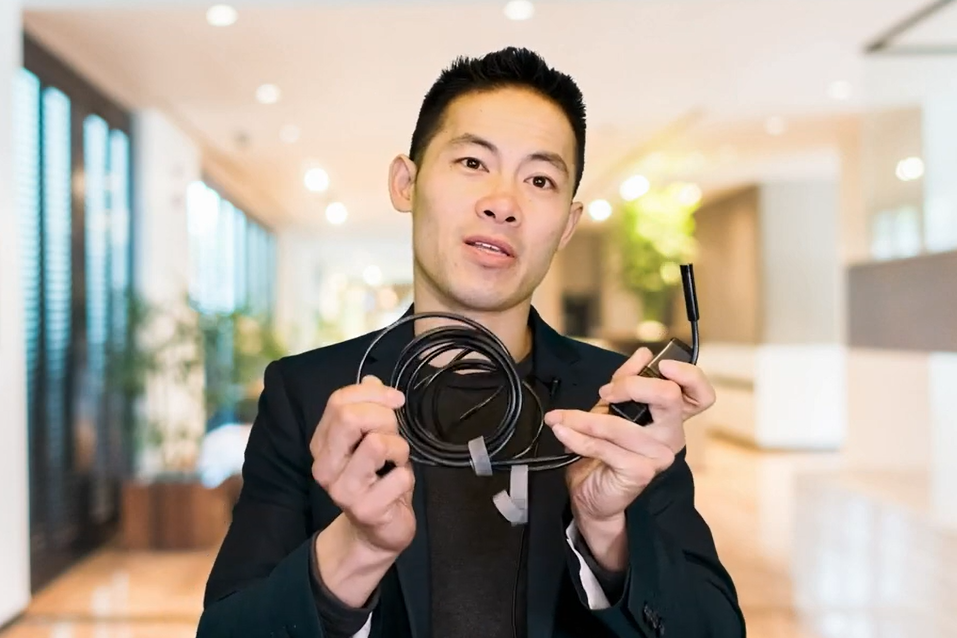
If you have a leak in your house, you must find the source before calling a plumber or starting to tear things apart. A video camera is a great tool that helps you do that.
With a video camera, I can find where the leak comes from without taking apart too much stuff. It only requires me to poke a little hole through a wall so I can locate the leak source even within the walls but not create too much wall damage.
The Landlord Tutor Promise
There are different types of leaks that can occur. But because I have been managing properties for over twenty years, solving leaks is something I do on a daily occurrence.
If you would like to know how to efficiently and cost-effectively spot and solve property issues such as hidden water leaks, join the Landlord Tutor community and sign up here.
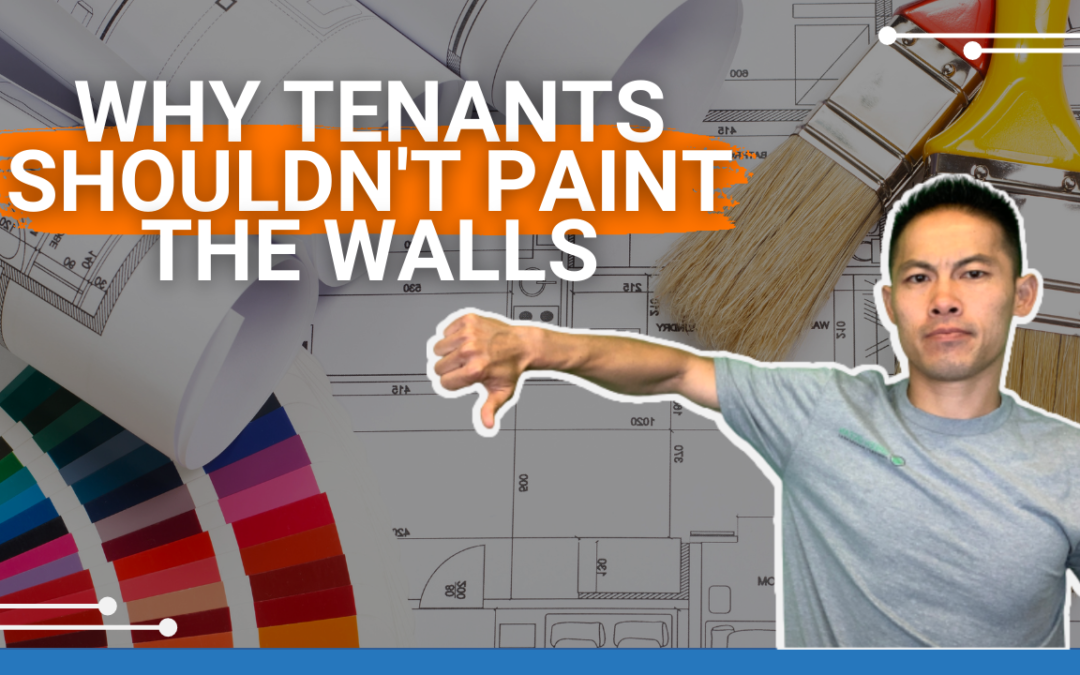
by J. Lau | Jul 13, 2022 | Property Maintenance, Tenant Issues
With just a little paintwork, tenants are more than ready to paint the walls and turn their space into what they can call their own. But any renovation or maintenance project should be taken care of by the landlord.
As your Landlord Tutor, here are some thoughts I would like to share on why tenants shouldn’t be allowed to paint the walls of a rental property.
Paint jobs are the landlord’s responsibility
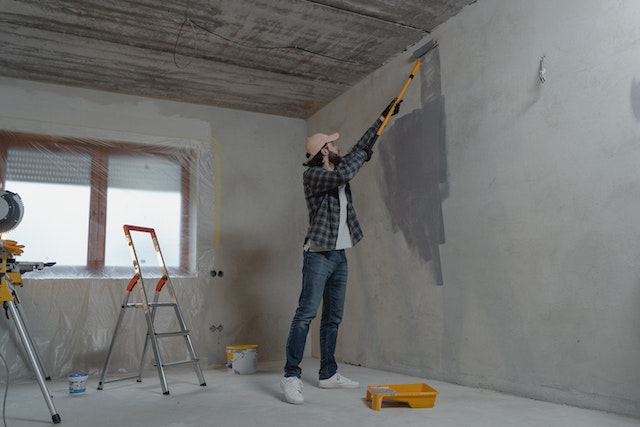
Paint jobs fall under maintenance. The costs required in keeping the property’s curb appeal are the responsibility of the landlord, just like with any other maintenance work.
That is why we specify that tenants should request any paint job on the property in all our leases. The request must be in writing and include the paint color they want. The color must not be anything wild but something neutral as well.
Using the same paint has its benefits
Generally, I use a standard color for all my properties: Revere Pewter by Benjamin Moore. It is a lovely neutral color for any room on your property.
Over the years, I have found that using the same paint has the following benefits:
- We can do touch-ups quickly
- We no longer have to try matching colors
- We save time and money on paint jobs
Because the paint we use is neutral, most tenants like it. But if a tenant asks for different paint color, the lease specifies that they have to paint it back to the standard color before they move out of the unit.
Walls must be painted back to the standard color
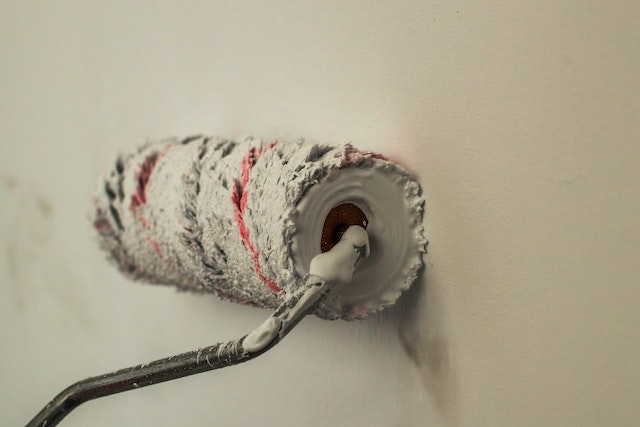
Regardless, we will ask tenants to repaint the walls in our standard colors. In addition, we make sure they know that they are liable for the cost of fixing any damage if the paint job is done incorrectly.
In preparation for our move-out inspections, we provide tenants with an established list of pricing. That way, they know how much work they will be responsible for before they move out. The pricing covers costs for painting a room, a wall, a ceiling, and any form of baseboards in the room.
We also emphasize that we will charge them if they do not paint the walls back to the standard color by a specific date.
The Landlord Tutor Promise
As a landlord and property manager, I have managed over 800+ properties and dealt with countless tenants who wanted to DIY paint jobs on their units.
If you or anyone else you know is looking for guidance on landlord responsibilities, such as dealing with tenants who shouldn’t paint the walls of your property, join the Landlord Tutor community and sign up here.
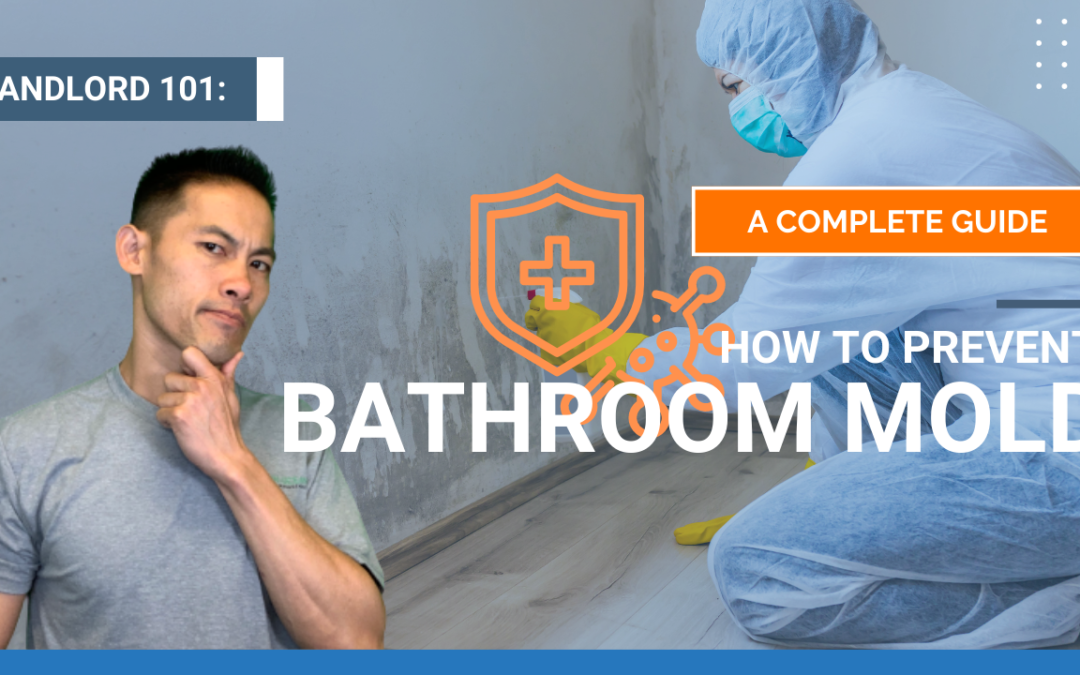
by J. Lau | Jul 4, 2022 | Health and Safety, Property Maintenance
Bathrooms are the most common area for mold to start. Once it does, it can be difficult to get rid of. Here are some Landlord Tutor tips to prevent bathroom mold.
An Introduction to Bathroom Mold
Bathrooms are so prone to mold because mold grows best in a moist environment that is filled with organic material such as dust, dirt, water damage, etc. Showers and baths can also cause the bathroom to get wet pretty quickly as it is a small, enclosed place.
Getting them to dry can be difficult, even if you have a window in your bathroom. Residents would not want to open it up, especially with the New England weather that would have them freezing if they kept that window open.
Tips to Prevent Bathroom Mold
Mold growth does occur over time, and could be a safety issue in the long run. Removing it can be expensive and difficult to solve, so the best thing to do is prevent them. Here are two tips you can use to prevent bathroom mold.
1) Install fans in your bathroom.
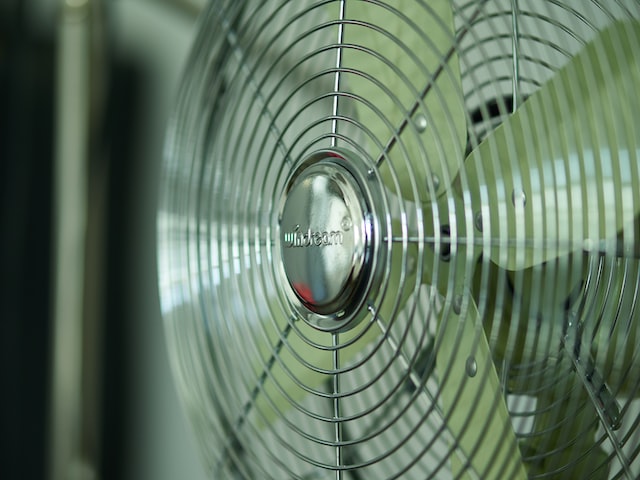
We install bathroom fans, the type that has to be vented outside. We don’t recommend installing the fan on the ceiling as there is only a little bit of space between the ceiling and the joist. You have to vent it all the way up.
To ensure that we vent out the air properly to the outside, we drill through the walls. That is not always possible in every building–such as those made with brick– but any good property manager should be able to make it work.
We also coordinate with our electrician to make sure that the power is there and that your residents can easily turn the fan on and off. We also look out for any gaps or holes so that rodents or pests will not get in.
2) Use IAQ paint.
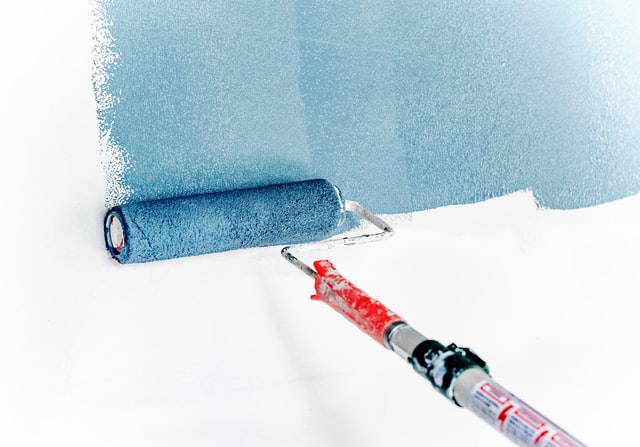
Some condo associations won’t let you install fans in your bathroom. So what we do instead is use a special paint referred to as IAQ (Indoor Air Quality). Aside from having a wide range of colors to choose from, this kind of paint is mold resistant.
At the end of the day, landlords must prevent molds on their property so that residents don’t get sick or sue. Self-managing is also an option, but most probably you don’t have the right equipment, experience, or knowledge base to resolve it.
It would be best to entrust property issues such as bathroom mold to professionals, for your safety and that of your residents.
The Landlord Tutor Promise
Among his many licenses and affiliations, Jarrett Lau is a mold remediator. If you or anyone else you know is looking where to learn how to prevent and resolve issues like bathroom mold, join the Landlord Tutor community and sign up here.














